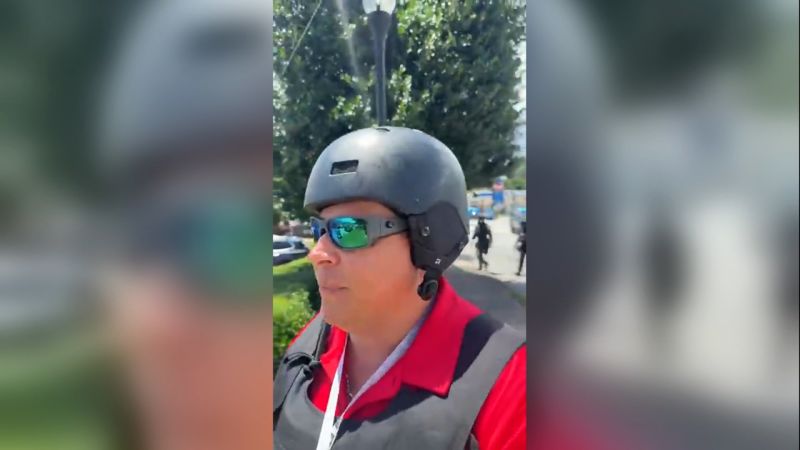In a notable development within the realm of journalism and immigration policy, Mario Guevara, a prominent Salvadoran journalist, is currently confronting the potential risk of deportation. Guevara has garnered significant attention through his work on social media, where he has built a substantial following by documenting immigration raids. His legal troubles escalated following his arrest during a protest in Doraville, a city situated northeast of Atlanta, under the watchful eye of federal authorities who have issued an immigration detainer for him.
During his recent arrest at a “No Kings” protest, Guevara’s capturing of his own arrest through live-streaming illustrated a concerning intersection of journalism and immigration enforcement. The detainer, a request from the U.S. Immigration and Customs Enforcement (ICE), may lead to his deportation, a situation criticized vocally by advocates for press freedom, including the Committee to Protect Journalists. Katherine Jacobsen, the Committee’s coordinator for the U.S., Canada, and Caribbean programs, condemned the request as a blatant act of censorship.
Guevara’s journey to the United States began in 2004 when he entered the country on a tourist visa, fleeing from death threats linked to his journalistic activities in El Salvador. His notable rise in Georgia’s media landscape is attributed to his unique approach of personally documenting immigration enforcement and the aftermath of such events. The Atlanta Journal-Constitution described Guevara as having made a name for himself, focusing on providing live, firsthand accounts of immigration arrests and their emotional impacts on families.
Having established his presence on platforms like Facebook with nearly 800,000 followers on his “MGnews” account, Guevara’s live stream during the protest provided a raw glimpse of his arrest as law enforcement asked the crowd to disperse. As the video reveals, Guevara was seen walking away when officers, recognizing him as a journalist, approached him and proceeded to detain him even as he identified himself as a member of the media.
The incident raised several questions regarding freedom of the press and the rights of journalists in such situations. Captured in the same livestream was Guevara’s plea to ensure that his equipment was treated respectfully. He emphasized, “I’m a member of the media,” and expressed his desire for law enforcement to safeguard his phone, stating, “Just reporting, officer, just reporting.” The conditions of his arrest included charges of obstructing law enforcement and unlawful assembly.
Guevara’s legal team asserts that he was clearly identifiable as a media professional, equipped with press credentials and a vest. Attorney Zachary Gaeta pointed out that Guevara was not partaking in protest activities; instead, he was committed to his role as a journalist documenting the events unfolding before him. While bail had been arranged for Guevara’s release, he remained in custody, further complicated by the ICE detainer request, which can allow federal agents to maintain custody of an individual for up to 48 hours to initiate their own processes.
ICE detainers represent a contentious aspect of immigration law, where local or state authorities may be asked to hold individuals for additional questioning, although compliance is not mandatory. As Guevara’s legal representatives prepare to address his immigration status, Gaeta highlighted their intention to file yet another bail motion if Guevara is handed over to immigration officials.
In a reflective post on Instagram, Guevara acknowledged his status as a non-U.S. citizen while conveying his deep respect and affection for the United States, imploring that the nation be blessed. The circumstances surrounding Guevara’s detention continue to unfold, with inquiries directed at ICE and Guevara’s legal representation amid growing concerns regarding press freedom and the treatment of journalists in politically charged environments.



